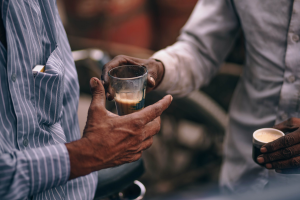
Speak to kin and speak to stranger
Words can hurt and words can anger
Speak with care and speak with truth
Words can heal and words can soothe
In any deep dispute or grudge, in any division in a community or country, there are people who try to heal and those who work to cut us apart from each other. You can tell who is who by how they characterize the people you disagree with or have some doubt about.
The healers and peace-makers try to overlook differences and minimize them, to bring people into the tent, to break bread with them, to work with them towards common goals. They will speak of our shared family, our country, our community, and be welcoming. They compromise and dicker and negotiate and try to promote the similarity of people.
The people who benfit from divisiveness will emphasize our differences, will breed distrust and sow fear. The will characterize people they have a dispute with as ‘other’ — foreign, strange, dangerous, and do their best to make you think of them as less than human. They will attach labels to people, and propagandize against them. They will use your base instincts to make you fear other people and will insist you not associate with ‘them.’
I have an essential faith in the goodness of people. That doesn’t mean I don’t lock my front door, or not look first before I cross the street. It does mean that if I have a problem with a person, or a group of people, that I will seek an accomodation, a compromise, a meeting of minds. I’ll go have lunch with them, or visit their home. I will try to ‘destroy my enemy’ in the most effective fashion — by making them my friend.
This may not always work, but trying to understand why people disagree with you can only serve to increase your knowledge of yourself and them, and benefit you even if you can’t completely agree. Decent people exist in all groups. You should cultivate their acquaintence.
